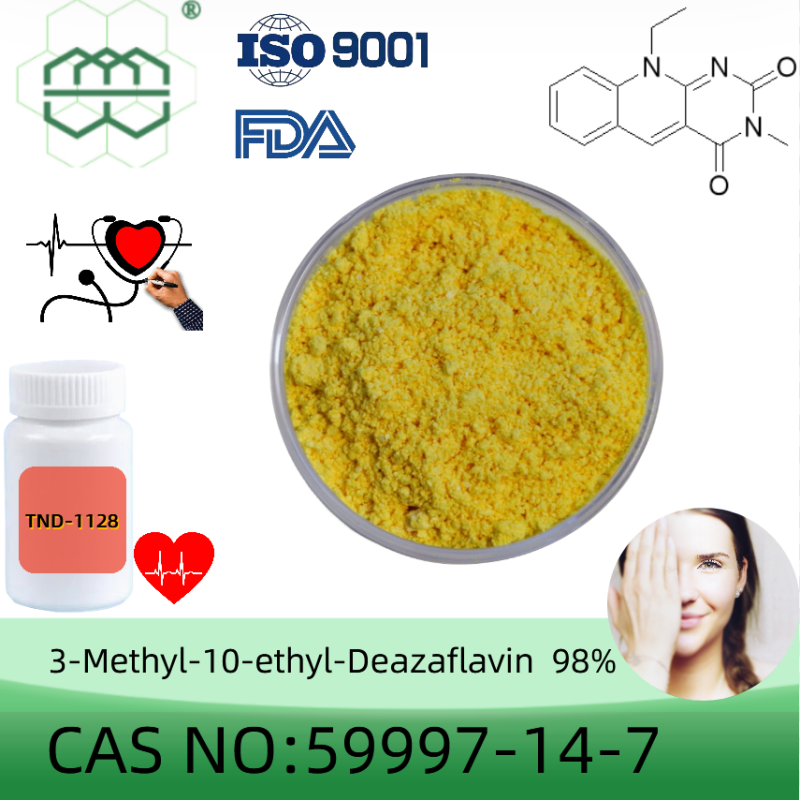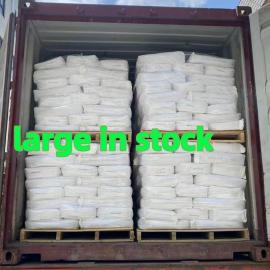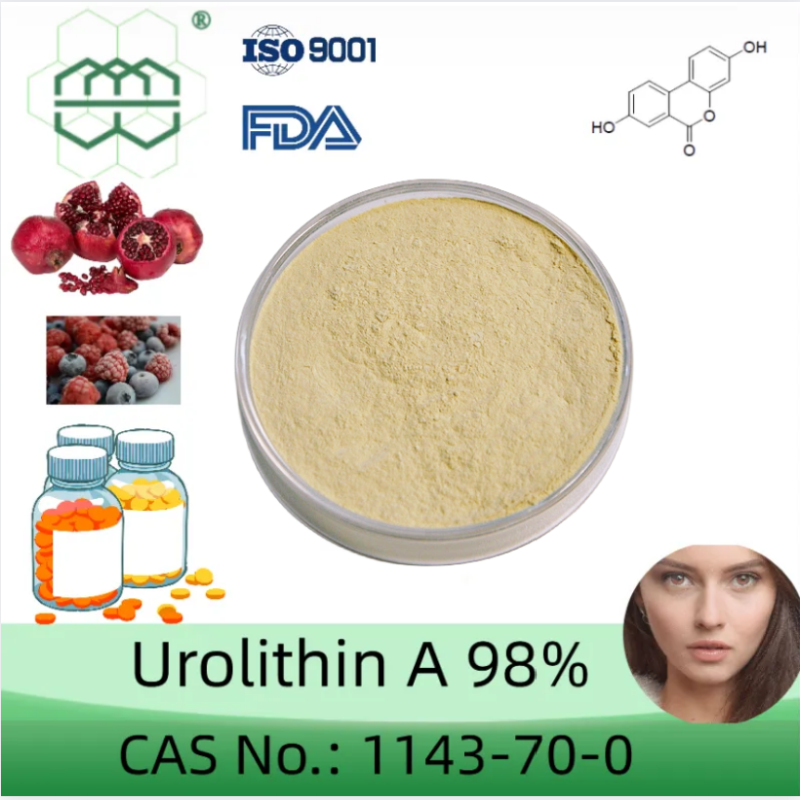Are edible bacteria (mushrooms) really rich in heavy metals?
-
Last Update: 2021-02-09
-
Source: Internet
-
Author: User
Search more information of high quality chemicals, good prices and reliable suppliers, visit
www.echemi.com
years, with the increasing importance people attach to healthy eating, the market demand for edible bacteria is increasing. Recently, however, information platforms such as the Internet have occasionally appeared with questions such as "Shouldn't mushrooms be eaten?" "Mushrooms or eat less" and other information, claiming that mushrooms on heavy metal rich ability is particularly strong, and will endanger health, which makes people concerned about food safety on mushrooms "hope mushroom sigh."Xinhua Food interviewed Zhou Changyan, a researcher at the Shanghai Academy of Agricultural Sciences and the Agricultural Product Quality and Safety Risk Assessment Laboratory (Shanghai) on the safety and quality assurance measures of edible fungi products. Zhou Changyan said that the claims about edible bacteria (mushrooms) rich in heavy metals lack systemic and accurate, not only that, the information cited in the mushroom-rich heavy metal data is not what we ordinary people call cultivated edible bacteria (mushrooms), mainly some inedable wild bacteria.there heavy metals in edible bacteria?Zhou Changyan: Let's look at the category of heavy metals: heavy metals refer to metals with a specific gravity greater than 4.5 g/cm3, there are dozens of kinds, such as copper, lead, zinc, iron, cobalt, nickel, manganese, cadmium, mercury, tungsten, tantalum, gold, silver, etc., both essential to the human body and bad for human health.heavy metals are widely found in nature, animals, plants and microorganisms, all rely on water, soil, gas growth, in the process of growth will more or less absorb some trace amounts of heavy metals, edible bacteria are no exception. From a scientific point of view, edible bacteria due to the cultivation environment, there may be trace amounts of heavy metal residues.are there possible ways to pollute edible bacteria from heavy metals?: Heavy metals in edible bacteria come from the substitlis, water, soil, gas and so on necessary for their growth. The growth cycle of mushrooms is relatively short, the absorption of surrounding heavy metals through the surface of the mushroom body of edible bacteria is relatively limited, the adsorption of heavy metals by edible bacteria, most likely through the fungus period of mycelium from the cultivation substitum. The heavy metals in the edible bacteria picked in the wild come from the soil, organic matter, water source and air pollution in the place where they grow, and the heavy metals in the cultivated edible bacteria come from the cultivated substitum, soil cover, air and water.with the development of science and technology, the main culture base raw materials used in artificial cultivation of edible bacteria have shifted from the simple use of wood, wood chips and other wood raw materials to agricultural and by-products accessories. Straw, corn core, straw, bran, mulberry, sugar cane slag, beet slag, peanut shell, sunflower shell, wine spoil, etc. can be used for the cultivation of edible bacteria. In addition to the main raw materials, edible bacteria cultivation substrate also need to add a certain amount of lime, gypsum, calcium phosphate and other substances to regulate the acidity and alkalinity of the substrate., it is understood that the current edible bacteria used in the substitli and accessories of heavy metals are very few, and there are corresponding monitoring and control measures. If the heavy metals in the substitlis or accessories exceed the standard, then the vast majority of strains will not survive and grow normally.there is heavy metal pollution in the existing cultivated edible bacteria?: There are often rumors about the abunding of heavy metals. After investigation, the source of the statement is basically domestic and foreign unnified cultivated wild mushrooms, especially non-edible fungal mushrooms for heavy metal rich research results. Market circulation of edible bacteria mainly artificial cultivation, such edible bacteria by artificial domestication and long-term artificial cultivation and breeding, their ability to absorb heavy metals has been far weaker than wild species., water, soil and air from possible sources of heavy metal contamination in edible bacteria. In practice, when making cultivation substituts, non-polluting raw materials are screened, drinking water is used in water sources, and soil is not polluted to avoid heavy metal pollution. Moreover, most edible bacteria do not need soil cultivation, heavy metal pollution is easier to control. Such as mushrooms using wood chips cultivation, golden needle mushrooms using wood chips, grain seed shell cultivation, grass mushrooms using straw cultivation, apricot mushrooms using corn core cultivation.In fact, edible fungus cultivation is very exquisite, especially edible fungus factory cultivation, all cultivated raw materials used in the cultivation should be strictly selected and checked before cultivation, heavy metals are mandatory indicators, heavy metals exceeding the standard of raw materials can not be used for edible bacteria cultivation. On the one hand, due to product safety considerations, on the other hand, heavy metal super-standard raw materials on the growth of edible mycelium has a significant inhibitory effect, will affect normal production. Now the artificial cultivation of edible bacteria, has basically cut off the source of heavy metal pollution, there is no problem of heavy metal pollution.it safe to use edible fungus products now?: In recent years, china's government regulatory authorities at all levels have carried out a survey and monitoring assessment of the content of edible bacteria heavy metals, relevant research institutes, testing institutions have also done a lot of investigation and testing.2009, researchers from Zhejiang Forest College tested mushroom samples in the Zhejiang market and found no samples of heavy metals exceeding the standard. In 2013, experts in edible fungi research of Jiangsu Academy of Agricultural Sciences conducted a survey on heavy metal pollution of various types of bacteria grown by the Academy of Agricultural Sciences, and found no samples of heavy metals exceeding the standard. In 2014, zhejiang university teachers and students in Hangzhou market more popular mushrooms, mushrooms, white mushrooms and other edible bacteria for sampling testing, did not detect heavy metals exceeding the standard. The Ministry of Agriculture's Edible Bacteria Product Quality Supervision and Inspection Testing Center (Shanghai) and the Ministry of Agriculture's Agricultural Product Quality and Safety Risk Assessment Laboratory (Shanghai) led a census-type special monitoring and risk risk mapping assessment of edible bacteria quality and safety (including heavy metal cadmium) in the past five years. are there any quality assurance measures in the production of edible fungi? : China's agricultural production has been vigorously promoting scale, standardization, quality and branding. For the production of edible fungi, for a variety of production of raw materials and inputs, production control, product grade specifications and safety limits, etc. , the state has developed the corresponding product quality standards, safety production norms and safety limit standards. Through strict control of the production process, to ensure the quality and safety of listed products. high nutritional value, rich in essential amino acids, polysaccharides and dietary fiber, as well as a variety of vitamins and rich mineral elements. As consumers, we should believe in scientific and rational consumption, and should not be affected by the exaggerated and false reports of "food-rich heavy metals". Edible bacteria are both nutritionally healthy and safe food.
This article is an English version of an article which is originally in the Chinese language on echemi.com and is provided for information purposes only.
This website makes no representation or warranty of any kind, either expressed or implied, as to the accuracy, completeness ownership or reliability of
the article or any translations thereof. If you have any concerns or complaints relating to the article, please send an email, providing a detailed
description of the concern or complaint, to
service@echemi.com. A staff member will contact you within 5 working days. Once verified, infringing content
will be removed immediately.







